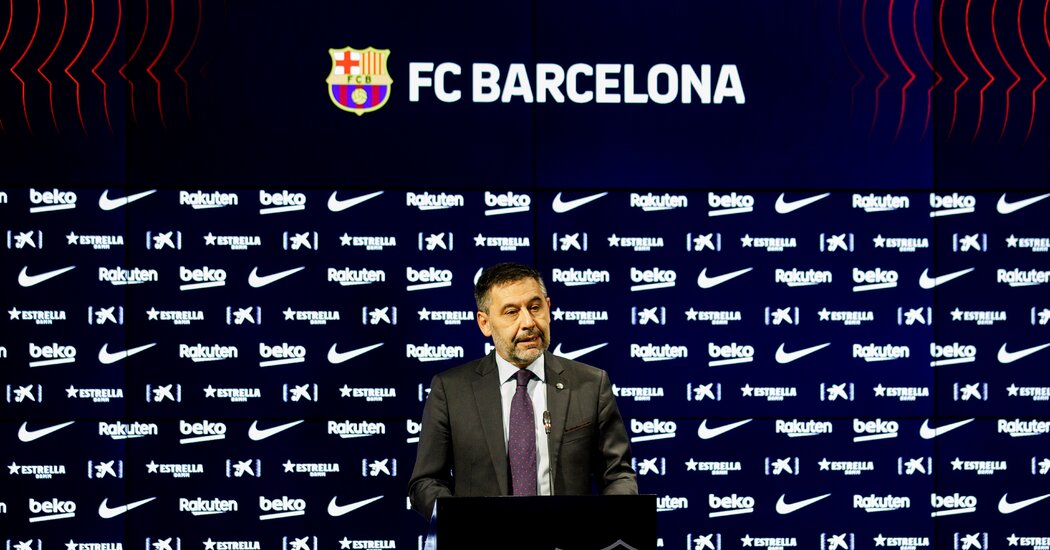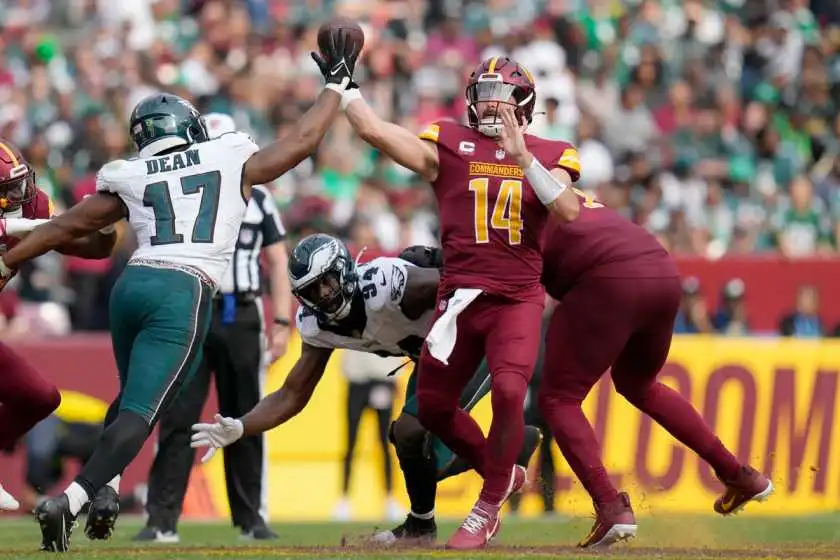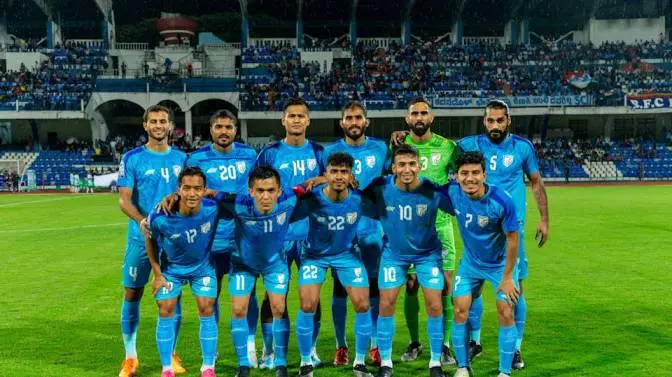Josep Maria Bartomeu, the embattled president of the Spanish soccer giant F.C. Barcelona, announced Tuesday that he had resigned, bringing an abrupt end to a tenure in which he had taken power almost by accident, nearly driven away the best player in the club’s history and provoked a recall effort that many expected to lead to his ouster as soon as next month.
Barcelona’s entire board resigned along with Bartomeu, who said he was stepping down to spare the club’s tens of thousands of members from having to vote in a referendum on his leadership during the pandemic.
“We cannot and do not want to be in the position of having to choose between the protection of health and the exercise of the right to vote. And that is why we have made the decision not to call the vote and to resign immediately from our duties,” a somber looking Bartomeu said in a late night speech broadcast on the club’s website.
As recently as Monday, he had told reporters that he had no plans to resign.
While announcing his resignation, Bartomeu also made the bombshell claim that on Monday he had agreed with the leaders of what he described as Europe’s other “big clubs” to participate in a European Super League, a closed competition that has been much discussed in recent years, but one that faces a number of political, sporting and economic hurdles if it is to become reality. A final decision whether or not to participate in such a competition would need to be approved through a vote of Barcelona’s members, he added.
Bartomeu’s departure came only weeks after the fan-owned club’s members had collected the thousands of signatures required to forced a vote on the club’s leadership. Many of them blame Bartomeu for leading the club into the biggest crisis in its modern history, and for nearly driving away Lionel Messi, the team’s best player, who briefly announced his intention to depart only to reverse himself weeks later.
Messi had criticized Barcelona’s leadership last season and grumbled about the direction of the club. In announcing his decision to remain at the club in September, though, he blamed Bartomeu personally for breaking his word to him, saying the president had reneged on a promise to let him leave at the end of last season.
“The management of the club led by Bartomeu is a disaster,” Messi said.
Instead of holding a no-confidence vote, Barcelona will be run by a temporary board who will look to steady the listing club until a new president is elected — a process that must be completed within 40 to 90 days of the temporary board’s taking control. Whoever takes over will face an inbox overflowing with major issues, including the future of Messi, who can speak to other clubs as soon as January, as well as how to plug major holes in the club’s finances, a problem that has only been exacerbated by the coronavirus pandemic.
Bartomeu lashed out at local government officials in Catalonia for not accepting a request to delay the no-confidence vote for 15 days because of concerns they could not be held safely, before turning to his critics who he said attacked not only him and his fellow board members but also their families.
While Bartomeu has been unpopular for some time, fan anger peaked in the aftermath of the team’s 8-2 drubbing at the hands of Bayern Munich in the quarterfinals of the Champions League in August. In the wake of that result, the club was rocked anew when Messi, who had been with the club since he was 13 and had led it during the most successful era in the club’s history, announced that he wanted out.
Bartomeu attempted to frame his decision to stay on amid mounting anger as a sort of service to Barcelona: He said it would have been easy for him to leave after the Champions League humiliation, but he contended that would have left the club in worse shape. He said there were important issues needing to be resolved, including persuading Messi to stay, hiring a new coach and dealing with important player contracts.
“An early resignation at the end of the season would have led the club to an electoral process and a power vacuum, under the direction of an interim board, with limited powers, and during a period where it was necessary to make unavoidable and powerful sporting and economic decisions,” Bartomeu said.
The new board will face a number of challenging economic decisions immediately. They will have to stem losses that rose to more than $100 million last year, while also finding a way to cut the team’s debt, which has also grown rapidly in recent years. At the same time, several key sponsorship agreements — including one with the team’s principal sponsor, Rakuten — are expiring, and will need to be renewed or replaced. And a $1 billion stadium financing deal with Goldman Sachs to renovate the club’s famed Camp Nou stadium will need to be revaluated.
All the while, the new board will have to appease a fan base that has become increasingly disillusioned by poor results, poor recruitment and a string of scandals and missteps at the top of the club.
Bartomeu’s announcement that Barcelona had agreed to form a Super League comes after speculation about talks of a breakaway European league featuring the richest teams started anew in recent weeks. The concept, which has been around in one form or another for two decades or more, has been widely lambasted by European soccer’s governing body, UEFA, and other key stakeholders.
Last week, UEFA said such a closed league would be “inevitably boring.” UEFA and the top clubs are currently in negotiations over a restructuring of the format of the Champions League, the Continent’s marquee club championship, starting in 2024, with the biggest clubs pushing for reforms that would see more games between the top teams.
An early reaction to Bartomeu’s announcement about the plans came from Javier Tebas, who heads Spain’s La Liga. “Unfortunate @jmbartomeu statement on his last day about @fcbarcelona joining a weak and imaginary competition which would be their ruin,” Tebas wrote on Twitter. “It confirms his ignorance about the football industry. Sad end for a president with successes and lately many mistakes.”
Fractious management shakeups are not new at Barcelona, an intensely political institution at which rival factions have often jostled to rule. Allies of Bartomeu once almost succeeded in ousting a former president, Joan Laporta, in 2008. Laporta narrowly survived, and went on to lay the foundations for much of the team’s current success by naming a largely untested former player, Pep Guardiola, as coach. Under Guardiola, and with Messi leading on the field, Barcelona went on to enjoy a decade of unparalleled success.
Bartomeu took over in 2014, stepping up from a vice president role after his ally Sandro Rosell was forced to step down amid claims of improper conduct in the signing of the Brazilian forward Neymar.
Those early years proved to be relatively stable, with success on the field and record income off it as Barcelona became the first European team to cross the 1 billion euro revenue mark. In recent times, though, the club has lurched from crisis to crisis, as millions of dollars spent to rejuvenate an aging squad only seemed to result in worse performances, and boardroom intrigue spilled into the public domain.









